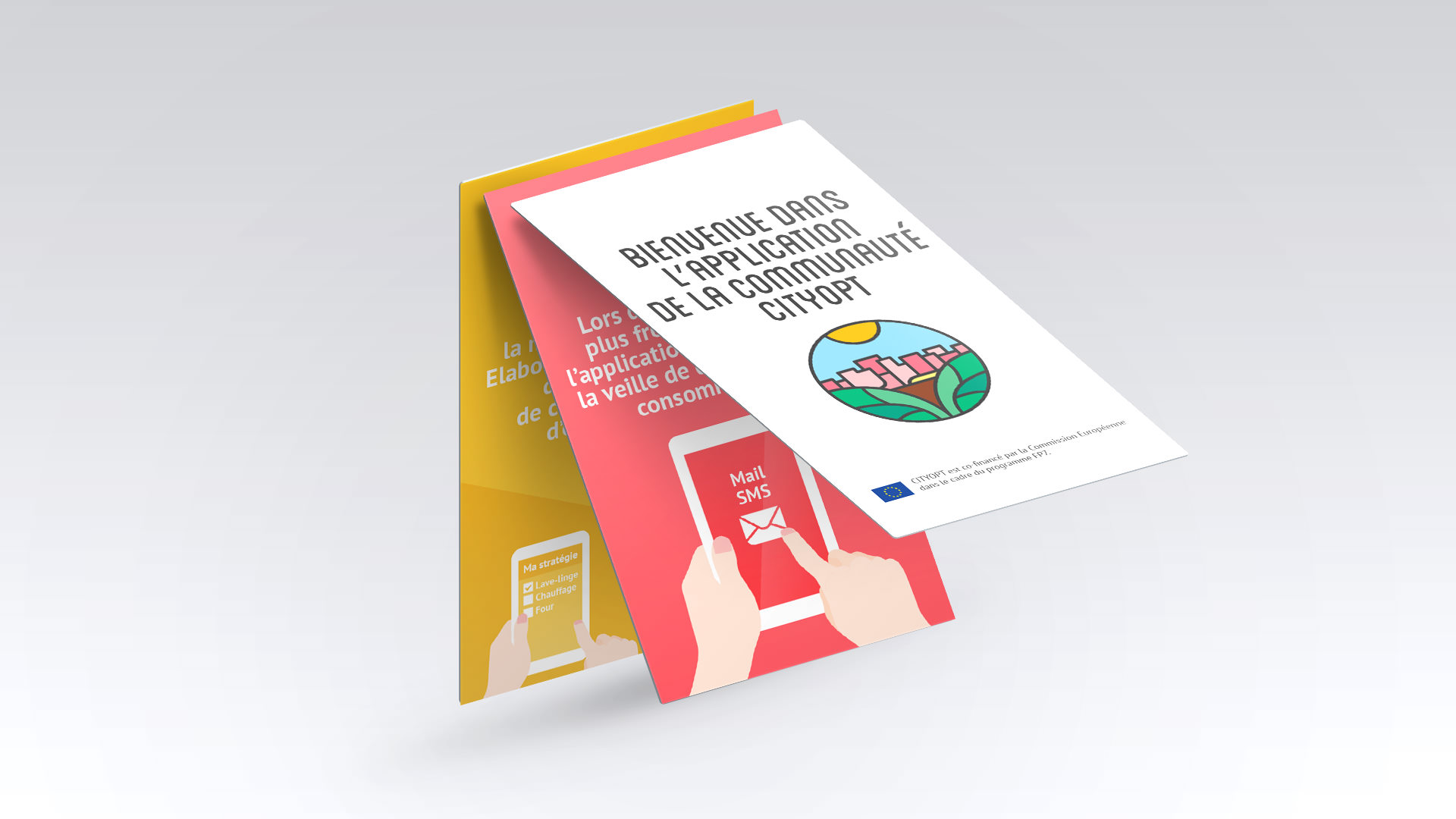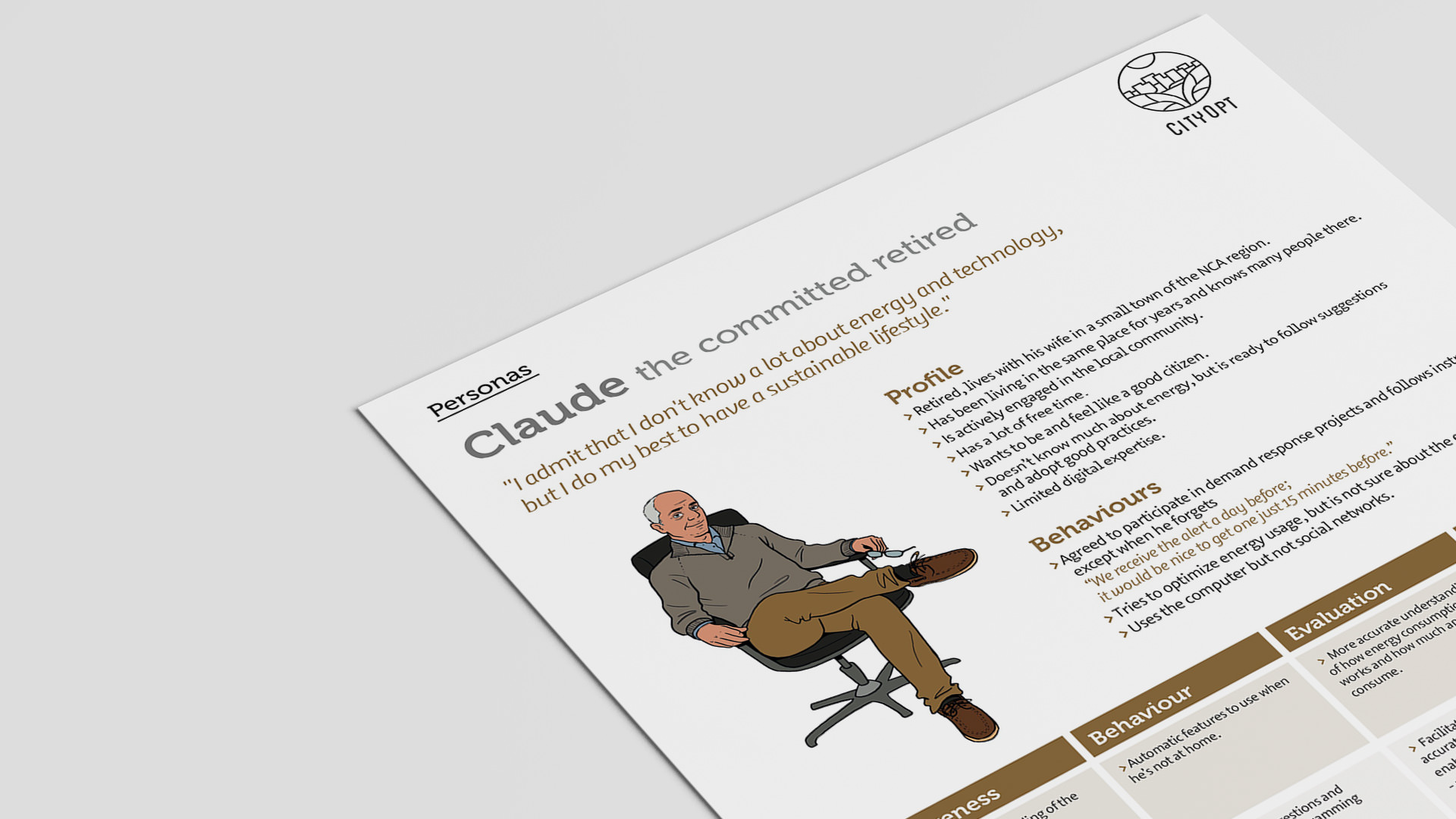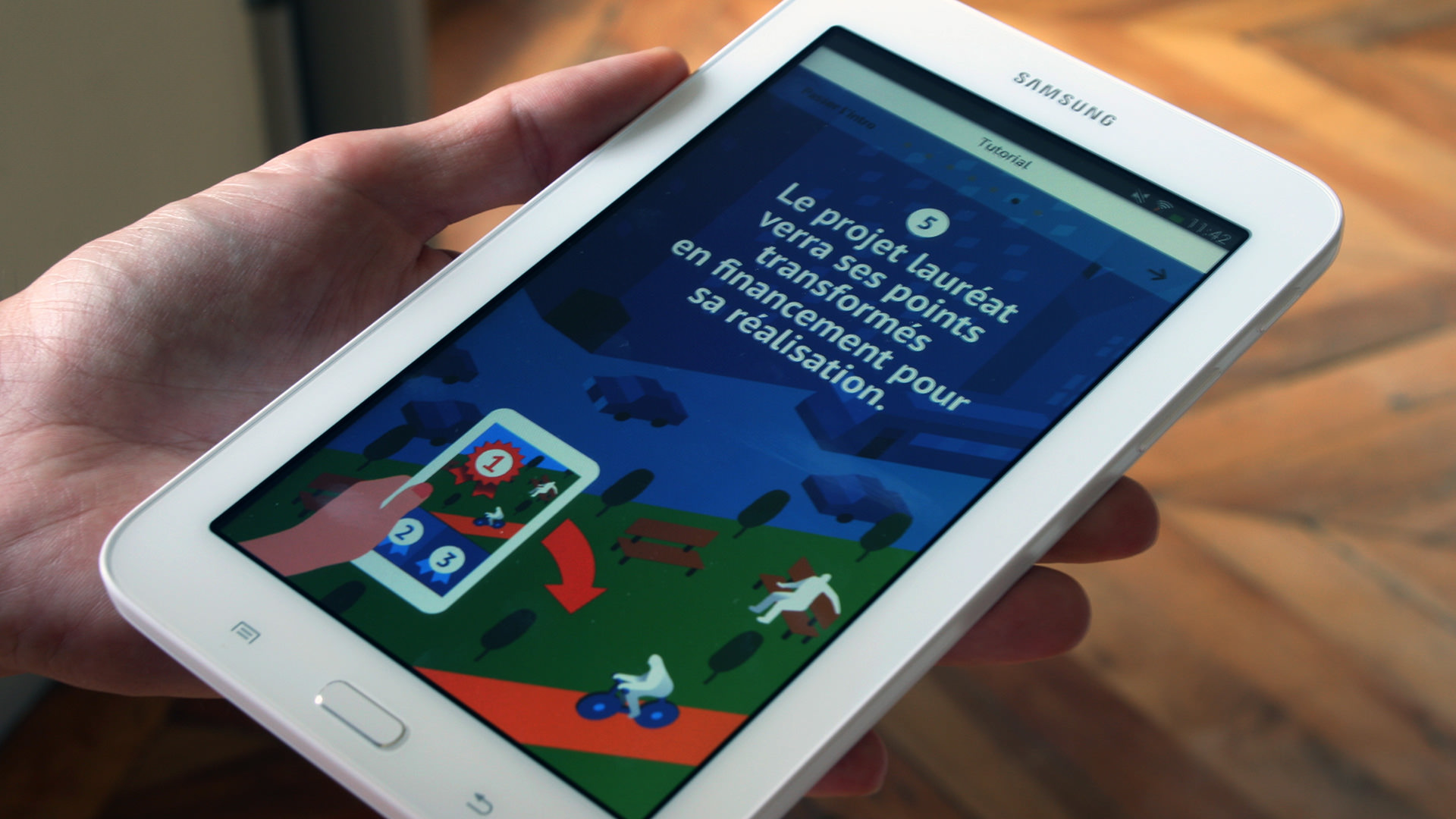Share
CityOpt, a research project funded under the FP7 European Commission framework, is getting citizens involved in testing new tools to reduce energy consumption during peak loads, with the goal that this pilot program will set a new trend in protecting locations with fragile electricity supplies.
3 things to know
Encouraging behavioral change
The CityOpt app helps people reduce domestic energy consumption during energy peak loads and nudges them towards more eco-friendly behaviors.
Incentivizing energy reduction
Their savings were rewarded with points, which participants could “donate” to a local community project of their choice, helping to maintain people’s engagement with the app.
Real time monitoring
An office block in Vienna, Austria, uses the CITYOPT app to identify the best scenario to integrate energy supply sources with fluctuating temperatures into an efficient micro-energy network..
Gallery





In depth
Service mix:
Context
One of France’s most fragile regions, the Provence-Alpes-Côte d’Azur, is perhaps best known for its vineyards, lavender groves and sparkling coastal cities like Nice. It is however also one of France’s most fragile regions for electricity supply. Particularly in winter, when electrical heating sees electricity use rise, the locals experience frequent blackouts, as the local energy provider, EDF, tries to manage the supply.
This is why Nice Côte d’Azur has been selected as a pilot city for the CITYOPT project, an initiative that aims to create new methods and tools to deal with energy consumption, and to involve local citizens in designing and testing them.
CITYOPT is a pilot programme funded by the European Commission that explores and tests new tools for reducing energy consumption during peak loads.
Research
Experientia has led the user research activities for the pilot program. User experience methodologies have engaged local citizens from the area in interviews, workshops and design activities. These have defined what people really need to help them control their energy use, and to create a mobile app that the pilot participants will be able to use to do just that.
The entire project has applied a user experience (UX) methodology, to make sure that the tools and methods that the project proposes for energy management resonate with the people who will have to use them. It’s not just Nice Côte d’Azur: other pilots are planned for Helsinki, Finland and Vienna, Austria, where similar UX methods are also being applied. Right now, the Nice pilot looks at the residential level, and explores how people’s everyday behaviors can be nudged to better support the energy use of the entire region.
Model
Changing individual behaviors to help the entire region
The Nice Côte d’Azur local population plays a crucial role in reducing domestic electricity consumption during peak loads. To help people change the way they consume electricity, the pilot provides selected locals with the CITYOPT mobile app (aka the CITYOPT Operational tool). The app informs people about upcoming network peak loads, and then uses playful persuasion to get them to commit to lowering their energy consumption at a specific time.
How the app was created – a participatory process
The Experientia design team also focused on the visual design of the mobile application. In workshops for design idea creation, designers and local stakeholders came together to brainstorm innovative ideas that could potentially be included in the app. A second participatory workshop, again involving local stakeholders, compared these ideas to the expectations and needs of local people, which had been uncovered in the original interviews and workshops with people from the region. The feasibility of the different ideas was discussed, and the final features for the CITYOPT app were selected. Designing, sketching and coding is a long road from ideas to app. First Experientia’s design team, with the support of the local project partners, worked on three wireframes of the app, which defined the information architecture and interaction model for how the app would work. Later on, colors and styles were added, taking it from outline to a fully-fledged design. Experientia then developed the front-end, web-based code, while the consortium partners – CSTB and EDF – implemented the back-end, repositories, hardware interfaces and statistical algorithms. Nice Côte d’Azur Métropole was responsible for localizing the application in French and recruiting local dwellers to participate in the pilot test.
Impact
The project was piloted with 200 households in Nice using the CITYOPT app during the first wave of testing. During the demonstration test, leader Experientia explored how people use the app, whether they take part in the demand-response scenarios, and what conditions and driving factors are most likely to convince people to participate. The test research was supported by quantitative and qualitative activities like online surveys, contextual interviews and contextual observations. The actual consumption data was also measured through pre-installed smart-meters, and used to evaluate the effectiveness of the CITYOPT system.
Related projects
| Cookie | Duration | Description |
|---|---|---|
| cookielawinfo-checkbox-analytics | 11 months | This cookie is set by GDPR Cookie Consent plugin. The cookie is used to store the user consent for the cookies in the category "Analytics". |
| cookielawinfo-checkbox-functional | 11 months | The cookie is set by GDPR cookie consent to record the user consent for the cookies in the category "Functional". |
| cookielawinfo-checkbox-necessary | 11 months | This cookie is set by GDPR Cookie Consent plugin. The cookies is used to store the user consent for the cookies in the category "Necessary". |
| cookielawinfo-checkbox-others | 11 months | This cookie is set by GDPR Cookie Consent plugin. The cookie is used to store the user consent for the cookies in the category "Other. |
| cookielawinfo-checkbox-performance | 11 months | This cookie is set by GDPR Cookie Consent plugin. The cookie is used to store the user consent for the cookies in the category "Performance". |
| viewed_cookie_policy | 11 months | The cookie is set by the GDPR Cookie Consent plugin and is used to store whether or not user has consented to the use of cookies. It does not store any personal data. |